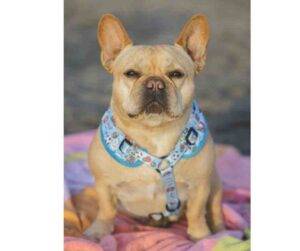 French Bulldogs, affectionately known as “Frenchies,” are one of the most popular small dog breeds, cherished for their compact size, distinctive bat-like ears, and amiable disposition.
French Bulldogs, affectionately known as “Frenchies,” are one of the most popular small dog breeds, cherished for their compact size, distinctive bat-like ears, and amiable disposition.
Ideal for urban living, these charming dogs are characterized by their easy-going personality and minimal exercise needs, making them perfect companions for a variety of lifestyles.
 Breed Facts
Breed Facts
-
- Country of Origin: France
- Breed Group: Non-Sporting
- Height: Approximately 11 to 12 inches at the shoulder
- Weight: 16 to 28 pounds
- Lifespan: 10 to 12 years
- Average Price: Typically between $1,500 and $8,000, depending on lineage and breeder
- Hypoallergenic/Non-Shedding: No; French Bulldogs are not hypoallergenic and they do shed, though minimally.
- Good with Kids: Yes; they are known for being affectionate and patient with children.
- Breed Recognition: Recognized by the American Kennel Club (AKC) and other major canine organizations.
French Bulldog History
 French Bulldogs originated in the 1800s, descending from the Toy Bulldogs brought to France by English lace workers during the Industrial Revolution.
French Bulldogs originated in the 1800s, descending from the Toy Bulldogs brought to France by English lace workers during the Industrial Revolution.
In France, these dogs were crossed with other breeds, likely including terriers and Pugs, leading to the establishment of the breed as known today.
Frenchies quickly became associated with Parisian cafe life, and their popularity among artists, actors, and writers helped elevate their status as a fashionable companion.
Frenchie Personality
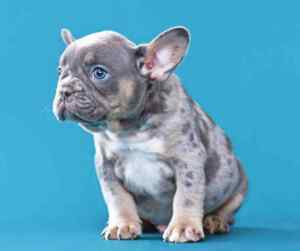 The personality of the French Bulldog is one of the breed’s most appealing traits. Known for their affectionate, playful nature, Frenchies are also known for being particularly good-natured with children.
The personality of the French Bulldog is one of the breed’s most appealing traits. Known for their affectionate, playful nature, Frenchies are also known for being particularly good-natured with children.
They make excellent companions for the elderly as well due to their moderate energy levels and loyal disposition. However, they can be stubborn, which means consistent, gentle training is necessary to mold well-behaved pets.
French Bulldog Appearance
 French Bulldogs have a stocky, muscular build, a smooth coat, a squashed face, and trademark “bat ears.” They possess a short, easy-to-care-for coat that comes in a variety of colors including brindle, fawn, white, and combinations of brindle and white.
French Bulldogs have a stocky, muscular build, a smooth coat, a squashed face, and trademark “bat ears.” They possess a short, easy-to-care-for coat that comes in a variety of colors including brindle, fawn, white, and combinations of brindle and white.
Their expressive eyes and wrinkled brows give them a distinctive, often humorous expression.
French Bulldog Health Concerns
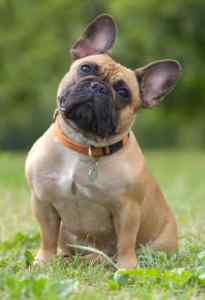 French Bulldogs face several breed-specific health challenges, primarily related to their brachycephalic (flat-faced) nature.
French Bulldogs face several breed-specific health challenges, primarily related to their brachycephalic (flat-faced) nature.
These include:
- breathing difficulties
- heat intolerance
- dental issues due to their compact jaw space
- skin allergies
- spinal disorders
- eye conditions such as cherry eye
Prospective owners should ensure they purchase their Frenchie puppy from reputable breeders who undertake genetic testing and health screening of their breeding stock.
Frenchie Exercise Needs
 Despite their low energy level, French Bulldogs require regular, moderate exercise to help maintain healthy weight and muscle tone. A daily walk and some playtime are generally sufficient to meet their needs.
Despite their low energy level, French Bulldogs require regular, moderate exercise to help maintain healthy weight and muscle tone. A daily walk and some playtime are generally sufficient to meet their needs.
Due to their brachycephalic nature, it’s important to avoid strenuous exercise, especially in hot or humid weather, as they can easily overheat.
Frenchie Training and Behavior
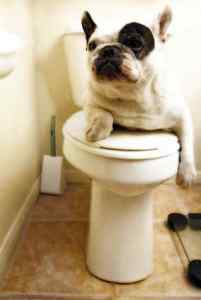 French Bulldogs can be stubborn when it comes to training, but they are also very sensitive to their owner’s emotions. Positive reinforcement techniques, such as treats and praises, work best.
French Bulldogs can be stubborn when it comes to training, but they are also very sensitive to their owner’s emotions. Positive reinforcement techniques, such as treats and praises, work best.
Early socialization and puppy training classes are recommended to help your Frenchie develop into a well-adjusted adult. They generally get along well with other animals and are not known to be aggressive.
French Bulldog Grooming Needs
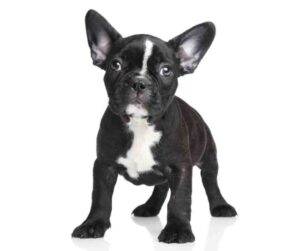 French Bulldogs are relatively low-maintenance in terms of grooming. Regular brushing will help reduce shedding and keep their coat healthy.
French Bulldogs are relatively low-maintenance in terms of grooming. Regular brushing will help reduce shedding and keep their coat healthy.
They require regular ear cleaning to prevent infections, and due to their wrinkled skin, attention should be given to cleaning facial creases. Nail trimming and dental care are also important parts of their routine.
Frenchie Care Needs
Caring for a French Bulldog involves monitoring their health closely, especially regarding their respiratory and joint health.
Comfortable living conditions, avoiding extreme temperatures, and managing exercise are key. Regular veterinary check-ups are essential to catch any potential health issues early.
Frequently Asked Questions About Frenchies
- Are French Bulldogs good for first-time dog owners? Yes, their easy-going and adaptable nature makes them suitable for first-time owners, but potential owners should be aware of their health needs and associated costs.
- Can French Bulldogs live in apartments? Absolutely, their small size and moderate exercise needs make them ideal for apartment living.
- Do French Bulldogs bark a lot? Generally, French Bulldogs are not excessive barkers. They tend to alert their owners only when necessary.
- How often should I feed my French Bulldog? French Bulldogs should be fed twice a day, following the food manufacturer’s recommendations adjusted for the dog’s size, age, and activity level.
- Can French Bulldogs swim? Due to their front-heavy structure and brachycephalic shape, French Bulldogs are not natural swimmers. Close supervision and a dog life jacket are recommended near water.
Is the Frenchie the right breed for you?
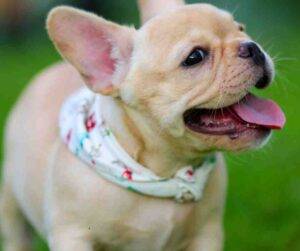 If you’re looking for a low-energy, affectionate companion who is comfortable in smaller living spaces and enjoys being close to their human, a French Bulldog might be the perfect match.
If you’re looking for a low-energy, affectionate companion who is comfortable in smaller living spaces and enjoys being close to their human, a French Bulldog might be the perfect match.
However, potential owners must be prepared for the financial and emotional investment in their health care, given their potential medical complexities.
Further Reading
- The American Kennel Club’s French Bulldog Page (https://www.akc.org/dog-breeds/french-bulldog/): Offers comprehensive information on breed standards, care tips, and more.
- French Bulldog Club of America (https://fbdca.org/): Provides resources, breeder referrals, and detailed insights into the breed.
- The Complete Guide to French Bulldogs by David Anderson: This book covers everything from breeding, puppy care, diet, and training to adult dog care.
Thank you for your interest in our breed profile. Be sure to check out the many additional breed profiles listed on our Small Dog Breeds A to Z home page.
